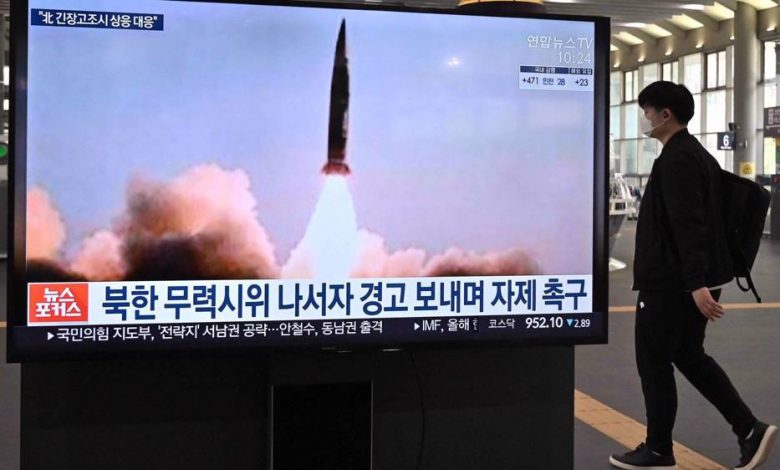North Korea dismisses ‘spurious’ US diplomacy as cover for ‘hostile acts’, warns of corresponding response
North Korea has lashed out at US President Joe Biden for his comments about Pyongyang’s nuclear program, dismissing Washington’s talk of diplomacy as “spurious” and warning of a corresponding response to its hostile policies.

In an address to the US Congress last week, Biden called North Korea’s nuclear program a “serious threat” and vowed to work with allies to deal with the issue “through diplomacy as well as stern deterrence.”
The White House also announced that the president was open to negotiations with Pyongyang on denuclearization after US officials had completed a months-long review of North Korean policy and the challenges Biden would face as he sought to distance his approach from the failures of his predecessors.
In a statement released by the official KCNA news agency on Sunday, the North Korean foreign ministry censured Biden’s speech to Congress and said it was illogical and an encroachment upon Pyongyang’s right to self-defense for Washington to call its defensive deterrence a threat.
“His statement clearly reflects his intent to keep enforcing the hostile policy toward the DPRK as it had been done by the US for over half a century,” said Kwon Jung Gun, a foreign ministry official, using the initials of the North’s official name, the Democratic People’s Republic of Korea.
“The US-claimed diplomacy is a spurious signboard for covering up its hostile acts, and deterrence touted by it is just a means for posing nuclear threats to the DPRK,” Kwon added.
The official said North Korea “will be compelled to press for corresponding measures,” and warned that Washington will face “a very grave situation” over Biden’s “big blunder” of calling Pyongyang a security threat.
The Biden administration has yet to devise a clear policy toward North Korea, but experts predict it will likely continue Washington’s traditional hostility toward Pyongyang.
White House spokeswoman Jen Psaki told reporters on Friday that Biden was seeking a different approach than his predecessors and the “complete denuclearization of the Korean Peninsula” remained the administration’s goal.
In an interview with The New York Times published on Wednesday, South Korean President Moon Jae-in urged his American counterpart to initiate a new round of diplomacy with North Korea over its nuclear program, following unsuccessful engagement between Pyongyang and the administration for US president Donald Trump.
The South Korean president stressed that Biden needed to engage directly with the North Korean leader and not delegate potential diplomacy to lower-level officials.
North Korea has been under rounds of crippling sanctions by the United Nations (UN) and the United States over its nuclear and missile programs.
Trump met with Kim Jong-un three times but refused to offer Pyongyang any concessions in return for steps taken by the North toward demilitarization, which hampered further diplomacy and prompted the North Korean leader to announce an end to a moratorium on the country’s missile tests.
Kim has underlined that the fate of Pyongyang’s relations with Washington would depend on whether the latter abandons its “hostile” policies.
Tensions have escalated since March when North Korea launched a new type of tactical short-range ballistic missile in the wake of annual joint war games between the US and South Korea, which Pyongyang views as rehearsal for an attack.
North Korea says its nuclear and missile capabilities are intended to defend the country against potential aggression by the United States, which has substantial military presence on the Korean Peninsula.
There are close to 30,000 US troops stationed in South Korea.







